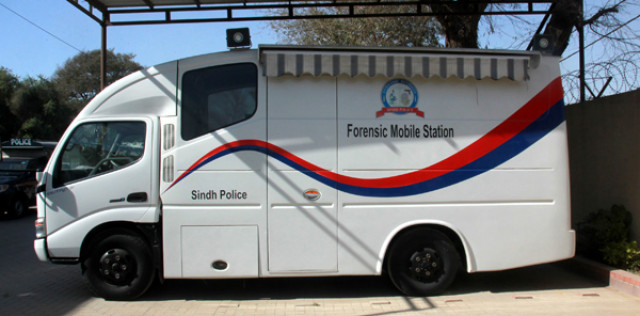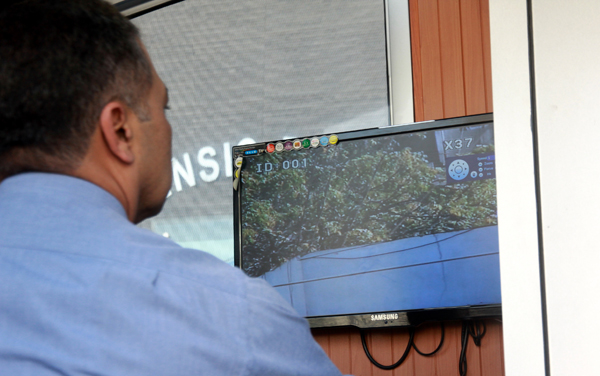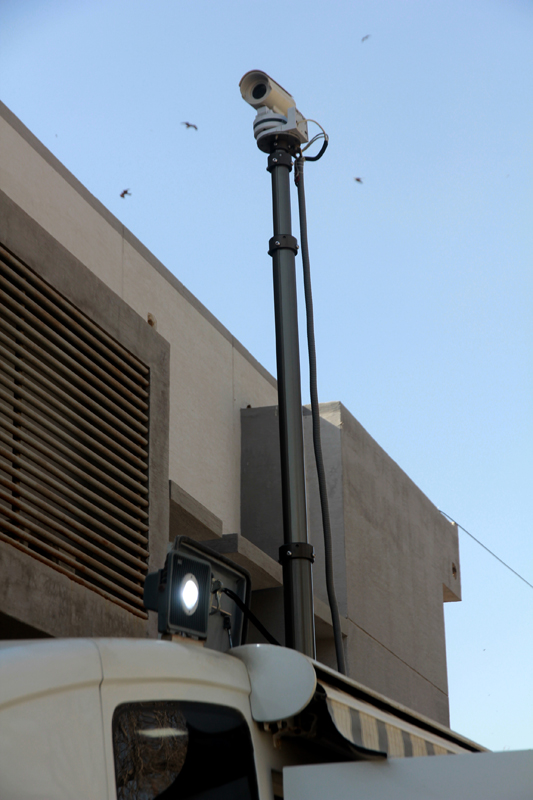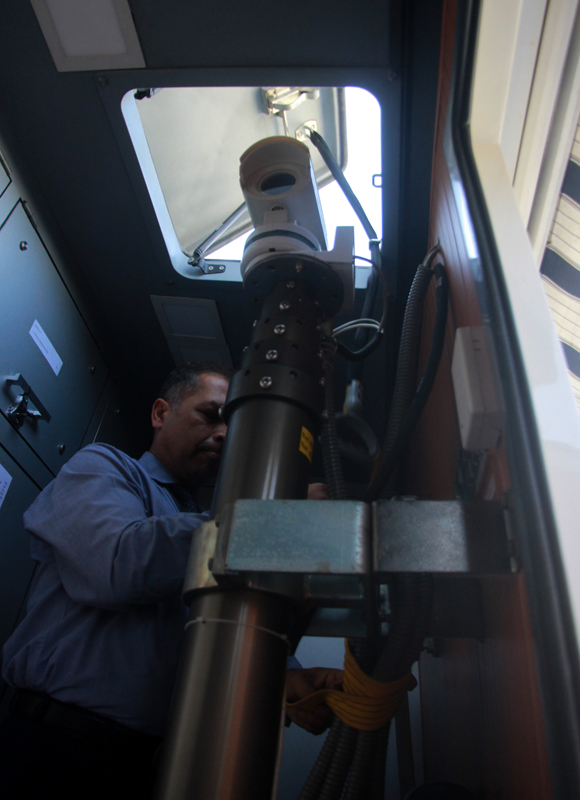Sindh's Mobile Crime Scene Vehicle to enhance forensic evidence collection
Police tend to forget forensic kit when summoned in hurry; the kit has been rendered redundant now

The Sindh police now have all the neccessary equipment to investigate crimes in the metropolis. PHOTO: ATHAR KHAN/EXPRESS
These kind of shortcomings - at times, excuses - on part of police investigators will no longer be heard of as the police have obtained a Mobile Crime Scene Vehicle (MCSV), which will help in the collection of forensic evidence collection from an incident site.
The forensic division of the Sindh police has obtained the MCSV. It has all the necessary equipment needed for forensic experts to collect evidence from crime scenes to help investigators in the prosecution of high-profile terrorism and criminal cases in the province.
Sindh Assembly makes DNA test mandatory in rape cases
"We have recently been provided with an MCSV," chief of the forensic division, AIG Javed Akbar Riaz, told The Express Tribune. "It is well-equipped and very helpful for our experts to collect evidence from the crime scenes."
 The Mobile Crime Scene Vehicle obtained by the Sindh police will be used to collect forensic evidence from incident sites. PHOTO: ATHAR KHAN/EXPRESS
The Mobile Crime Scene Vehicle obtained by the Sindh police will be used to collect forensic evidence from incident sites. PHOTO: ATHAR KHAN/EXPRESSThe van, costing around Rs20 million, has been funded by the Australian Federal Police while it was assembled locally in Lahore. It was obtained on February 13.
A trained 10-member team has been constituted to deal with this particular van alone. The MCSV can operate during the day and night with its team of professionals on duty round the clock in different shifts. It has the necessary equipment for preservation, collection and packaging of material evidence from a crime scene.
To make its functions uninterrupted, the MCSV has its own power generator, lighting system and workstations for the officers on board. The mobile van has different sections of expertise, including crime scene evidence collection, fingerprinting facility, digital photography, deoxyribonucleic acid (DNA) samples collection, vehicle identification and mapping of the crime scene.
Police hope to set up new forensic lab
So far, the van has been used twice to cover terrorism cases. "We used this to collect evidence after the deadly attack on the shrine of Hazrat Lal Shahbaz Qalandar in Sehwan and the terrorist attack on a DSNG van of Samaa TV recently in Karachi's North Nazimabad area," said AIG Riaz.
A police mobile van is also in the protocol for the MCSV for security purpose as officials believed that mobs usually target such vans at the crime scenes. "In the very few days, we had a bad experience as our protocol police van was attacked in Sehwan," said AIG Riaz.
 The van, which costs around Rs20 million, was funded by the Australian Federal Police. PHOTO: ATHAR KHAN/EXPRESS
The van, which costs around Rs20 million, was funded by the Australian Federal Police. PHOTO: ATHAR KHAN/EXPRESSMeanwhile, forensic experts are positive about their experience with the MCSV. "It has been a wonderful experience with this van so far," said DSP Farhaj Bukhari, a senior forensic expert. He explained that even though they had all the required equipment, most of the times, they were summoned in a hurry. Because of this, he said, they would lose or forget to take the complete equipment with them to the crime scene, which was a waste of time as well as a failure in preserving the evidence.
KU sets up first centre for training in forensic science
"Earlier, it was difficult to rush to the crime scene only with a kit box in a hurry," explained DSP Bukhari. "Sometimes our experts forgot to bring the equipment with them at crime scenes. Most of the time, we had faced problems due to darkness but now we have proper search lights in the van."
In investigations, crime scene has a crucial importance. Usually, the investigators can probe 50% of the cases through the crime scene.
Forensics division
In a bid to improve the forensics lab and its expertise, the forensics division has trained nearly 90 experts. After training, they have been deputed at police stations to reach crime scenes promptly and ensure the preservation of all the evidence before it is too late.
The forensic division of Sindh police is working with 117 experts. "Forensic evidence is admissible in court," said AIG Riaz. "The more efficient it is the more edge it gives in investigation and prosecution against criminals to prove the offence on their part."
 A 10-member team has been constituted to operate the van. PHOTO: ATHAR KHAN/EXPRESS
A 10-member team has been constituted to operate the van. PHOTO: ATHAR KHAN/EXPRESSExperts stressed that at least one such van should be provided to each police district in the financial hub of the country where crime rate is higher when compared to other cities.
The forensic division of the Sindh police has three labs - one each in Karachi, Hyderabad and Larkana. The first forensic science laboratory in Karachi was established in 1958 at the Central Police Office. Later, the Criminalistics Division was created by merging the pre-Partition Fingerprint Bureau with the Florence Science Laboratory in 1983. Finally, the Criminalistics Division was renamed 'Forensic Division' in 2009.
Right now, the forensic division comprises units for audio-visual analysis, digital forensics, monitoring chemical samples, investigation of crime scenes, integration of ballistics identification systems, forensic photography, automated fingerprint identification system and fingerprinting, firearm injury, a comparator for handwriting examination, questionable documents and vehicle identification.



















COMMENTS
Comments are moderated and generally will be posted if they are on-topic and not abusive.
For more information, please see our Comments FAQ